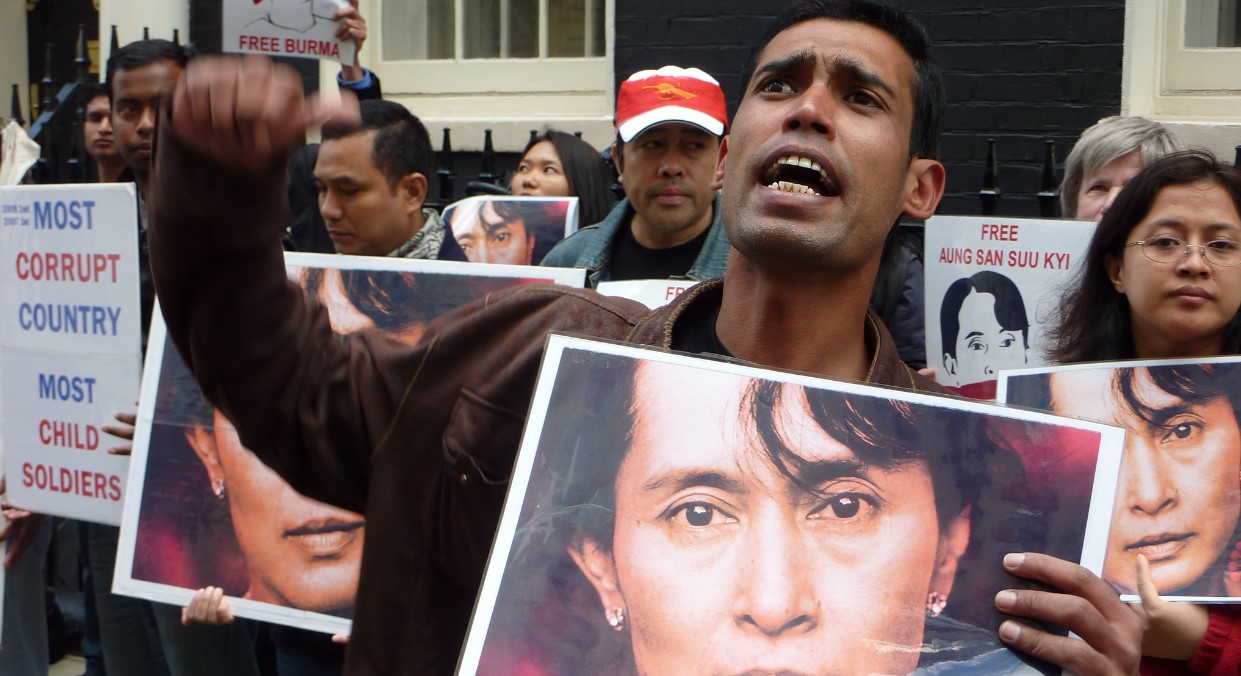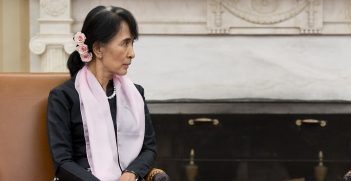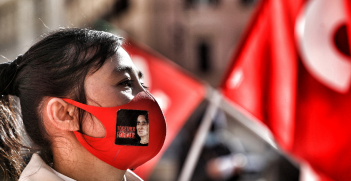Gambia vs Myanmar: The Best Last Hope for The Rohingya?

With Aung San Suu Kyi in The Hague defending her government against genocide charges, there is hope Myanmar will take further steps to comply with international law and address the structural issues behind the Rohingya crisis.
This article was originally published on Australian Outlook on 18 December 2019.
Myanmar’s troubled political history took another dramatic turn last week when former Nobel Peace Prize laureate, Daw Aung San Suu Kyi, appeared before the International Court of Justice (ICJ) in The Hague to defend her government against charges of genocide.
The case at the ICJ, which was brought by Gambia on behalf of the Organisation of Islamic Cooperation, is just one of several parallel efforts to hold Myanmar accountable for mass atrocities committed against Rohingya Muslims during army counter-insurgency operations in Northern Rakhine State in 2017. However, the proceedings at the world court have particular significance. This is because they are concerned not only with bringing the perpetrators of those horrific crimes to justice, but also more broadly with ensuring that the present and future conduct of the Myanmar state is in line with its commitments under the Genocide Convention.
The initial hearings in The Hague on 10-12 December were focused specifically on Gambia’s application for so-called “provisional measures” to be imposed on Myanmar. These measures are to protect the 600,000 Rohingya remaining inside Rakhine State against ongoing threats while the merits of the broader case are being reviewed, something that is likely to take years.
Although the ICJ is not unconcerned with individual criminal accountability, its approach is more restorative than retributive in nature and therefore arguably better suited to advancing the Rohingya’s cause, which depends on the willing cooperation of Myanmar as a sovereign state. The trial also carries significant risks, however.
Best case scenario
An optimistic assessment of the potential of the ICJ to make a breakthrough in international efforts to alleviate the Rohingya crisis rests on several distinct but mutually reinforcing characteristics of the legal proceedings now underway:
First, Myanmar has accepted the authority of the Court and is determined to defend itself against the charges brought by Gambia. The importance they attach to this is underscored by the highly unusual decision by the de facto head of government, State Counsellor Aung San Suu Kyi, to appear in person as the official “agent” of Myanmar. This contrasts dramatically with the government’s outright dismissal of the jurisdiction of the International Criminal Court (ICC) and refusal to cooperate with other UN human rights mechanisms. Although Myanmar vehemently denies the allegations of genocide, their participation in the proceedings at the ICJ requires them to face their accusers in open court and justify their actions within the framework of international law.
The potential value of this was apparent already at the initial hearings in The Hague last week, when Aung San Suu Kyi in launching her defence felt compelled to make a number of implicit promises of progressive government action, which the international community can now use as “hooks” or pressure points for future engagement with Myanmar.
Second, by targeting the state of Myanmar rather than individual perpetrators, the case encourages the government and the military to take joint responsibility for meeting the country’s responsibilities under international law. This may be a steep challenge given the strained relationship between the two institutions. However, military spokesmen have expressed unequivocal support for the state counsellor’s decision to appear before the ICJ to defend Myanmar. It is notable, too, that the military in November, just weeks before the initial hearings, announced the establishment of a new court martial to investigate allegations of crimes committed in Gutar Pyin village in Northern Rakhine State. The latter appears to be a proactive response by the military to the findings of an independent commission of inquiry established by Aung San Suu Kyi to investigate the events of 2017, which is due to submit its report and recommendations at the end of this year. Thus, it suggests a will to at least appear to be cooperating with the government.
What is absolutely clear is that no real progress is possible in Myanmar – whether in securing justice for the victims of human rights violations or restoring stability and improving human security on the ground in Rakhine State – without close cooperation between the government and the military. This is true not least because Rakhine State is currently mired in another, large-scale armed conflict between the government and a Rakhine Buddhist armed group, the Arakan Army, and civilian governance has effectively collapsed in parts of the state.
Third, and very importantly, the strong focus of the ICJ on present and future state conduct opens a possibility for Myanmar to be rehabilitated by taking genuine steps to fulfill its obligations under the Genocide Convention. The fact that there is a “way out” greatly improves the chances that Myanmar will respond constructively to international demands. It also establishes a positive link between the Court and other parts of the UN system (and other international agencies), which will be important partners in assisting Myanmar to implement its obligations.
Fourth, the impact of the ICJ is almost immediate by the standards of international justice, which generally moves at a glacial pace. Although determining the merits of the case could take a decade or more, a ruling on the provisional measures requested by Gambia is likely to come already in January and, if affirmative, will direct Myanmar to address a number of specific issues under the Genocide Convention. While the Court does not have enforcement powers, its decisions are binding, and Myanmar’s compliance will be subject to regular review.
Ultimately, the hope is that Myanmar can be moved to defend its interests not simply through blanket denials of culpability, but by stepping up its efforts to address the structural causes of the Rohingya crisis. These include long-standing military impunity for human rights violations, institutionalised discrimination, and deep-seated inter-communal tensions. The implicit promises made by the state counsellor at the initial hearings provide a starting point and the court’s ruling on provisional measures can build on this to provide a framework for future remedial action by the Myanmar state and international assistance.
Worst case scenario
While the proceedings of the ICJ could become a catalyst for further action by the Myanmar government to address international concerns about the treatment of the Rohingya, they also have the potential to aggravate the situation. The Rohingya crisis is an extremely emotive issue and an inherently adversarial and very public court case could further polarise views both inside and outside the country.
The risk of a nationalist backlash inside Myanmar has increased greatly by the decision to implicate Aung San Suu Kyi and her government in the charges of genocide. While many ordinary Myanmar people may remain agnostic (or even quietly satisfied) about international criticisms of the military, this is not the case when it comes to “Mother Suu” as the State Counsellor is affectionally called. Indeed, many people perceive the case at the ICJ as an attack on the nation itself and have been rallying in support of their beloved leader.
In the weeks leading up to the first hearings in The Hague, rallies were held across the country, in some cases drawing tens of thousands of people in what appeared to be a largely organic outpouring of patriotism. The rallies were peaceful. However, Aung San Suu Kyi has publicly called for national unity in the face of international pressure and the movement has clear potential to turn hostile to foreigners – not to mention to the Rohingya – if the rulings of the court go against Myanmar.
Internationally, too, there is a risk that the proceedings at the ICJ could harden positions. To date, official condemnation and sanctions have been largely focused on the military. However, the case at the ICJ has robbed Aung San Suu Kyi and her government of the last fig leaf of probable deniability and could further unite world opinion against them. Western capitals are clearly reluctant to institute broader negative measures, such as aid boycotts, either because they understand that it will simply seal the fate of the Rohingya or because they don’t want to lose Myanmar to China. However, public pressure may propel them in that direction, if not immediately, then over a period of years, as happened in the 1990s.
The increased scrutiny by the international community could also encourage further actions by the Arakan Rohingya Salvation Army (ARSA), whose attacks on government security posts in Northern Rakhine State kicked off the violence in 2017 and may well have been intended to spark a larger conflagration to attract international attention.
In the worst case, growing anti-foreigner sentiment inside Myanmar could combine with increasing international isolation to reduce both the political will and capacity of the Myanmar government to take the kind of measures required of it by the Genocide Convention. Further violence in Rakhine State would only compound the crisis for Rohingya communities who may have become pawns in a wider political game.
Squaring the circle
The key to resolving the Rohingya crisis, like most conflicts, is to empower moderates on all sides that are willing to work to bridge the divides. This requires careful strategy and sensitivity to ever-changing political realities, something a court of law is not well-suited for. The 17 judges of the ICJ can help by drawing up a list of practical provisional measures that offers a realistic path forward. However, the onus is on political actors, including the Myanmar government, the UN and other states, to calibrate their response to the court’s rulings to ensure that polarisation is avoided and the space for cooperation is protected. For the Rohingya’s sake.
Morten B Pedersen is a Senior Lecturer in International Politics and Human Rights at the University of New South Wales Canberra and former Senior Analyst for the International Crisis Group in Myanmar.
This article is published under a Creative Commons Licence and may be republished with attribution.





